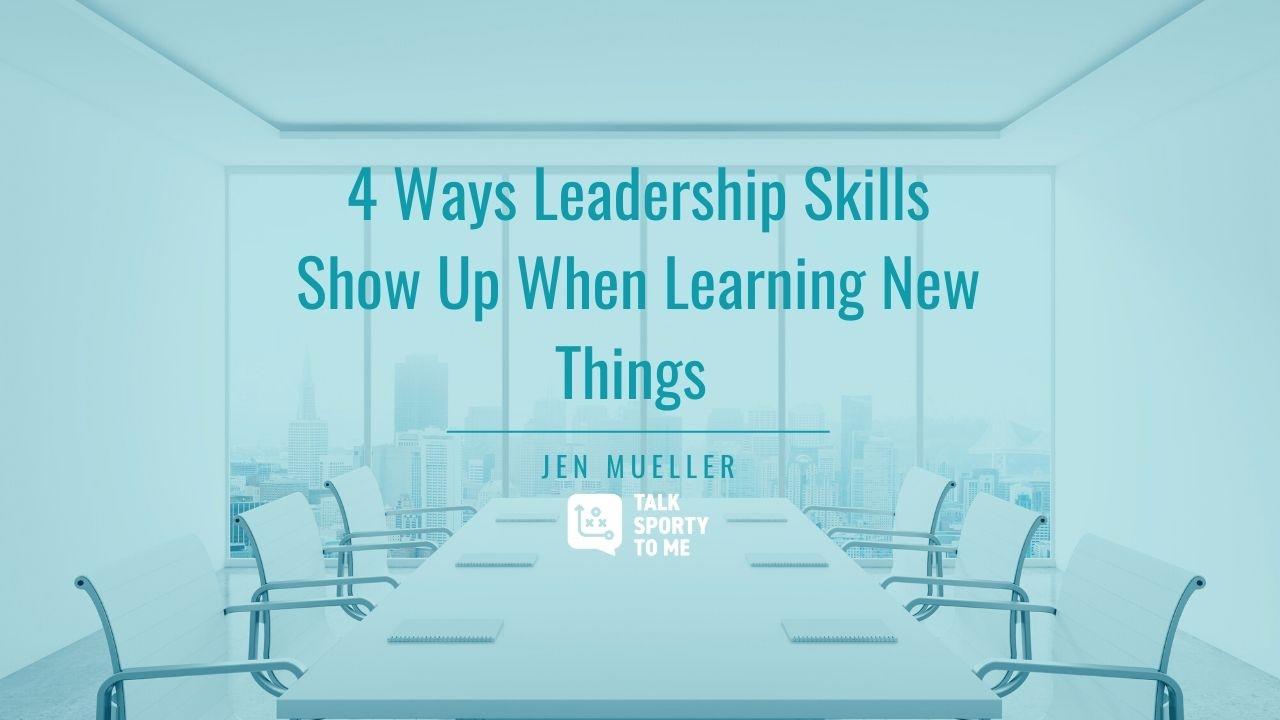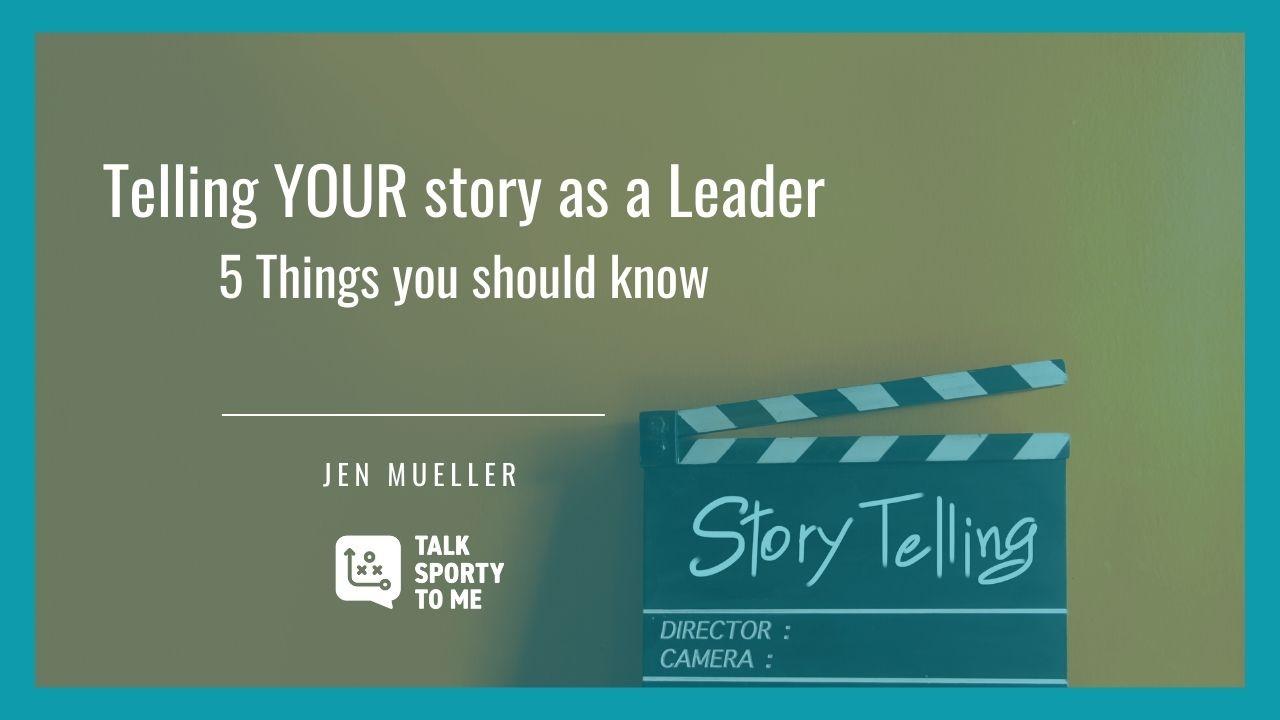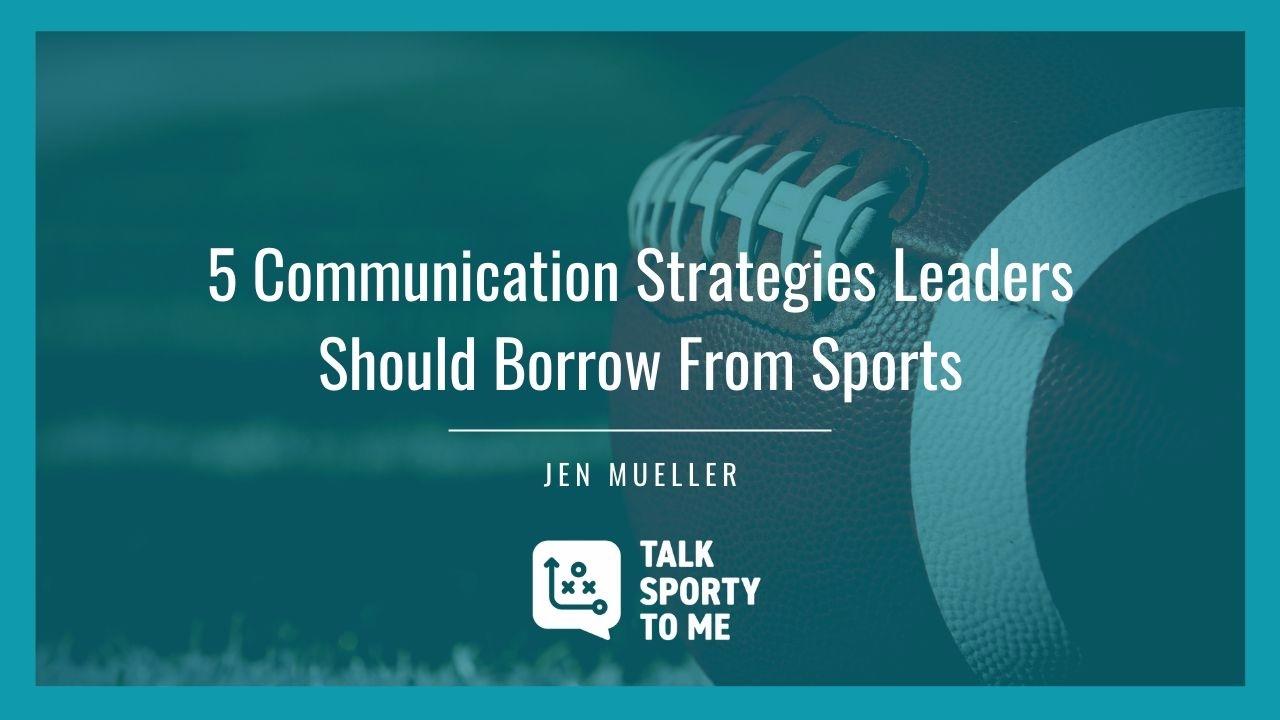I'M ONE TO TALK
Our Blog Posts will help you reach your full potential in becoming a confident conversationalist. New topics each week.
4 Ways Leadership Skills Show Up When Learning New Things

Leaders never stop learning.
I’ve always looked at the scholastic or philosophical side of that statement more than the technical or the tactical.
Reading articles, books, or studying the habits of other leaders is what came to mind most often, and then I was forced to learn a new website platform.
I’ve spent countless hours over the last three weeks trying to figure out how to use all the features, adapt what I had been doing to what’s now available and cursing under my breath in frustration because it just shouldn’t be that difficult.
It’s called learning.
And I don’t have as much patience for it as I thought.
You can know something without it being a learned behavior or habit. For that to happen, you need to actually do the thing.
The whole experience reminded me that I can read all the articles I want and study other leaders but unless I put myself in position to practice a new skill it won’t actually be something I learn.
Here’s what else I realized, learning things ...
Telling YOUR Story as a Leader: 5 Things you should know

People follow people, not plans.
Projections, plans, implementation strategies are all necessary and important for informing the people you lead, but don’t overlook the importance of providing insight on who they’re following.
That doesn’t happen by handing out your resume or talking about past success. It happens when you tell your story.
I’ll admit I’m not great at this. I’ve never felt it was important or even necessary to tell my story. What’s the point of hearing me ramble when you have your own stories and experiences to draw from?
And then after talking to a number of female leaders I realized I was looking at this the wrong way. Telling my story isn’t about me. It’s about giving others context for their stories and experiences. In other words, it’s a way of showing people they’re not alone.
Great leaders aren’t afraid to pull back the curtain and share personal stories.
And yet selling is sometimes easier than showing. Selling people on your qualifications seems like ...
Goal Setting Like an Athlete - 4 Things You Need to Do

There’s no shortage of advice for making goals or how to reach them. They could be S.M.A.R.T. goals, or maybe you prefer the HARD method or the WOOP approach, but it wouldn’t hurt to include an athlete’s approach, too.
Whether you’re setting new goals for the year, refining New Year’s resolutions or establishing a quarterly revenue goal these strategies will help you stay on track in reaching your goals.
4 Steps to Goal Setting Like an Athlete
1. Determine your impact number. Yes, I know there are a lot of factors that go into success but pick one. Just ONE. Every successful team has one metric that becomes the cornerstone of their philosophy and is specific to the strengths of their personnel. That number is not points or wins. It’s more specific and it’s a stat proven to a be a catalyst for success. For example; turnover differential, on-base percentage or three-point attempts in a game. Prioritizing one stat gives teams and athletes a focal point to come back to throughout th...
5 Ways to Be a Better Teammate at Work

Whether you like it or not you are part of a team. Even entrepreneurs work with teams of people that require a certain level of teamwork.
You can argue the value of working together on group projects.
You can dislike the team members you’re working with.
Or you can extoll the benefits and importance of teamwork, like the fact that people who work on a team are twice as likely to be engaged at work according to a global study done by the ADP Research Institute.
The teams I work as a sports broadcaster don’t question the value of teamwork because it’s a requirement. Teamwork isn’t a buzz word in sports. It’s not a cliché. Being a good teammate isn’t category on yearly performance review, it’s on display for athletes every single day.
Which means… watching sports can provide insight on how to be a better teammate. Sports is more than stats and scores.
Watching sports with a critical eye reinforces what teamwork actually is and can give you a framework for becoming a better teammate...
Access the Learn from a Leader Video Library

Leaders never stop learning.
And the best leaders learn from other leaders.
You have the opportunity to do that every single month. Invest in the Learn from a Leader series and you’ll get leadership insights and practical takeaways from a featured leader every month.
- Want to know how Amy Nelson, CEO of The Riveter, raised more than $20 million in venture capital? She walked us through how she gained the confidence and comfort-level to ask for money.
- Curious about best-practices from the Seahawks meeting rooms? Seahawks linebacker K.J. Wright pulled back the curtain.
- Need new ideas on how to brainstorm with a team? Seattle Chocolate CEO Jean Thompson shared the way she does it with her team.
- Struggling with a risk/reward scenario and looking for advice? Former Seahawk and current business owner, Lofa Tatupu provided two questions to evaluate the outcome.
That’s just a handful of the leaders who have taken part in the series. You can access all of the sessions in the Learn...
5 Ways to Develop Leadership Skills During the Holidays

Overwhelm and gratitude. The two seem to be competing emotions this time of year.
And it's no surprise when you think about the 11 months of deadlines, projects, revenue goals, performance reviews you've dealt with. Not to mention, preparing for everything that comes with the holiday season.
Here’s a suggestion: Hit pause on the crazy schedule but not on being a leader.
It’s okay to scale back your activity level and it’s possible to continue honing your leadership skills at the same time.
5 Ways to Develop Leadership Skills During the Holidays
Delegate. You don’t have to prepare every meal from scratch, or wrap every single present or complete the holiday errands all by yourself. The best leaders know how to delegate. Practice with your family and friends.
Listen. If you’re usually driving conversations and meetings at work, take a backseat in some of the family conversations. Give yourself space to just listen without feeling pressure to be “on.” Leaders listen (even when ...
Sports + Leadership + Community

Most athletes will never make it to the pros. But they can all become leaders.
Despite the amount of money pouring into youth programs and select teams the numbers are stacked against athletes, while being stacked in favor of executive leadership.
According to the NCAA, in most sports less than 8% of high school athletes become NCAA athletes and of those collegiate athletes less than 10% will go pro in their sport. Meanwhile, research conducted by Ernst & Young in 2016 showed a disproportionate number of CEOs played sports when they were younger. In fact, 90% of women surveyed among 821 high-level executives participated in sports.
It’s no coincidence athletes become leaders. Teamwork, collaboration, accountability, communication and the ability to motivate are core competencies of winning teams. It’s true at every level: high school, select, rec-league, college and in the professional ranks.
Leadership qualities show up everywhere in sports which is why the Elkhorn Athletic Asso...
5 Communication Strategies Leaders Should Borrow From Sports

Stats, scores and outcomes.
That’s usually how sports conversations are approached. Throw in an occasional cliché or metaphor and people really think they’re “talking sporty” when, in fact, they’re looking at sports through a very narrow lens.
Sports provides the framework leaders can use to develop effective communication skills. I see this first-hand as a sports broadcaster with nearly 20 years of experience inside professional locker rooms. You see it too because these communication takeaways are evident every time you watch a game – if you’re watching with a critical eye and an intent around developing stronger communication and leadership skills.
5 Communication Strategies Leaders Should Borrow From Sports
Have face-to-face conversations. The field of play is one of the only places face-to-face, real-time interactions are required. Coaches don’t send emails with an in-bounds play. Quarterbacks don’t text their receivers the route they’re supposed to run. A caddy doesn’
...
How Clear Can You Be?

No one has time for everything.
You’re going to have to delegate some tasks and not in the wishy-washy, “Do you think, if you get a minute and it’s not too much trouble that you could help me out?” kind of way.
That approach won’t get you any closer to a completed task or greater productivity. Failing to make a direct ask leads to frustration, guilt, anxiety and stress and not because people around you aren’t willing to help, but because of the way you asked.
Giving clear directions doesn’t mean you’re bossing people around or acting like a dictator. It simply means you’re spelling out what you need, when you need it and getting confirmation on next steps.
I call it the E.T.A. approach to conversations. It stands for Expectation, Timeline and Action Item and it makes all the difference in being able to get things done.
Leadership Lessons from My Past Life as a Football Official

I grew up believing that hard work alone would get me where I wanted to go in life. That being loud was a character flaw to overcome. That blending in was best, because you don’t want to rock the boat or make anyone uncomfortable and that the best way to deal with conflict was to back down and somehow make it my fault because, again, I wouldn’t want to make someone feel badly.
Ten years as a high school football official changed those beliefs.
My time on the field gave me a blueprint for communicating under pressure, dealing with criticism, and demonstrated the importance of making some noise.
Lessons learned on the field went way beyond football. Being a high school football official provided a lifetime of leadership lessons.
Leadership Lessons Learned on the Sidelines
- When you stand out make it count.Being the only woman in a room of men during weekly meetings and the only female on the sidelines meant every person in the room and every coach on the field knew my name. I used ...


